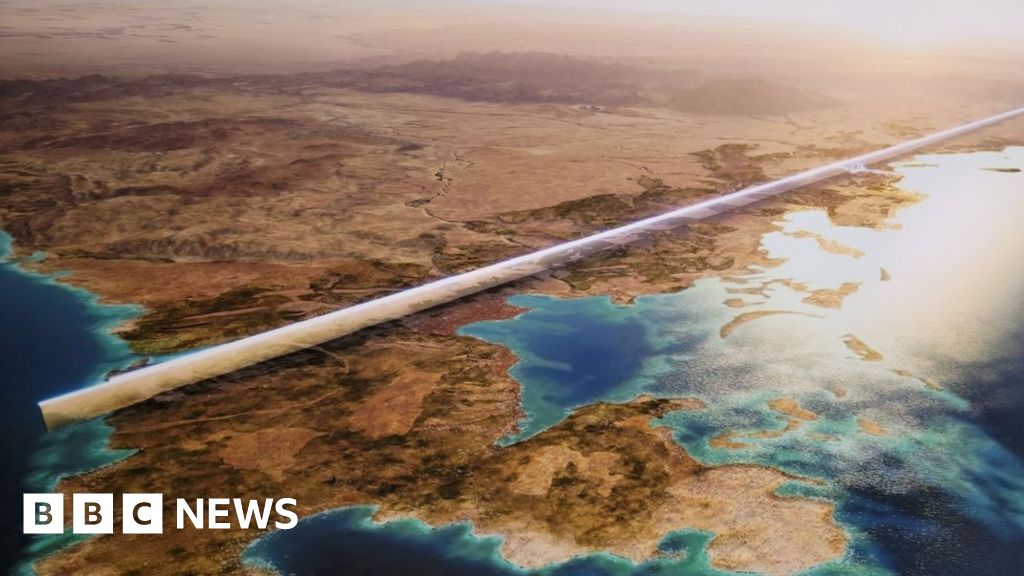Neom: Saudi forces 'told to kill' to clear land for eco-city

🌈 Abstract
The article discusses the forced eviction of villagers from their homes in Saudi Arabia to make way for the construction of the futuristic desert city of Neom, part of Saudi Arabia's Vision 2030 strategy. It highlights allegations of the use of lethal force by Saudi authorities to clear the land, as well as the detainment and prosecution of those who resisted the evictions.
🙋 Q&A
[01] Neom: Saudi forces 'told to kill' to clear land for eco-city
1. What are the key allegations made by the ex-intelligence officer, Col Rabih Alenezi, regarding the evictions for the Neom project?
- Col Alenezi claims he was ordered to evict villagers from the Huwaitat tribe to make way for The Line, part of the Neom eco-project.
- He says the order stated that "whoever continues to resist [eviction] should be killed, so it licensed the use of lethal force against whoever stayed in their home."
- He alleges that one villager, Abdul Rahim al-Huwaiti, was subsequently shot and killed for protesting against the eviction.
2. How have the Saudi authorities and Neom management responded to these allegations?
- The Saudi government and Neom management refused to comment on the allegations made by Col Alenezi.
3. What is the scale of the displacement caused by the Neom project, according to the article?
- More than 6,000 people have been moved for the Neom project, according to the Saudi government.
- UK-based human rights group ALQST estimates the figure to be higher.
- The article analyzes satellite images of three villages - al-Khuraybah, Sharma and Gayal - that have been demolished for the project.
4. What happened to the villagers who resisted the evictions?
- According to the article, at least 47 other villagers were detained after resisting evictions, many of whom were prosecuted on terror-related charges.
- Of those, 40 remain in detention, five of whom are on death row, according to ALQST.
- Several were arrested for simply publicly mourning al-Huwaiti's death on social media.
5. What has been the response of companies involved in the Neom project to the allegations of forced evictions?
- A former senior executive of Neom's ski project, Andy Wirth, says he repeatedly asked his employers about the evictions but was not satisfied with the answers.
- A chief executive of a British desalination company, Malcolm Aw, who pulled out of a $100m project for The Line in 2022, is extremely critical of the treatment of the local population.
[02] Displacement for other Saudi Vision 2030 projects
1. What are the details of the Jeddah Central project, another Saudi Vision 2030 scheme?
- The Jeddah Central project in western Saudi Arabia is set to include an opera house, sporting district, and high-end retail and residential units.
- More than a million people have been displaced for this project.
2. What are the experiences of those evicted from their homes for the Jeddah Central project?
- Nader Hijazi, whose father's home was razed in 2021 with less than a month's warning, says the photos of his former neighborhood evoke a warzone.
- Saudi activists told the BBC of two individuals arrested in connection with the Jeddah demolitions - one for physically resisting eviction, and the other for posting photos of anti-demolition graffiti on social media.
- A relative of a detainee in Jeddah's Dhahban Central Prison said they had heard accounts of a further 15 people being held there, reportedly for staging a farewell gathering in one of the neighborhoods marked for demolition.
- ALQST surveyed 35 evicted people from Jeddah neighborhoods, and none say they had received compensation or sufficient warning, and more than half said they had been forced out of their homes under threat of arrest.
3. What are the concerns expressed by the former Neom executive and the British CEO regarding the treatment of the local population?
- Andy Wirth, the former senior executive of Neom's ski project, says he was disenchanted with the project's management and felt that "something terrible had been exacted upon these people."
- Malcolm Aw, the CEO of Solar Water PLC who pulled out of a $100m project for The Line, says the local population should be seen as valuable assets, given their understanding of the area, and should be involved in the development process rather than being removed.